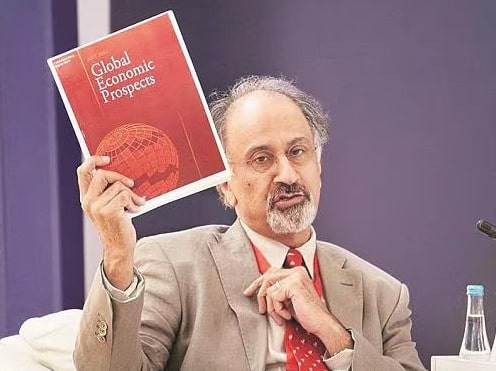
India is set to experience a period of solid economic growth, according to Indermit Gill, the Chief Economist of the World Bank. In a recent interview, Gill expressed optimism about India’s economic prospects, citing several factors that point towards a strong recovery.
One of the key drivers of India’s economic growth is the country’s vast consumer base. With a population of over 1.3 billion people, India is the world’s second-most populous country and has a rapidly expanding middle class. This has led to a surge in consumer spending, particularly in sectors such as e-commerce, healthcare, and education.
“India has a huge consumer market, which is growing at a rapid pace,” said Gill. “This provides a strong foundation for economic growth, as it fuels demand for goods and services and drives job creation.”
Another factor that is likely to contribute to India’s economic growth is the country’s ongoing infrastructure development. The Indian government has been investing heavily in infrastructure projects such as highways, airports, and ports, with the aim of improving connectivity and boosting economic activity.
“Infrastructure development is critical for economic growth, as it facilitates trade, enhances productivity, and creates jobs,” noted Gill. “India’s ongoing efforts to modernize its infrastructure will undoubtedly pay dividends in the long run.”
Gill also highlighted India’s favorable demographics as a key factor in its economic growth prospects. With a young and rapidly growing population, India has a large pool of potential workers who can contribute to the country’s economic growth.
“India’s demographic dividend is a huge advantage, as it provides a source of labor that can help drive economic growth,” said Gill. “If harnessed properly, India’s young workforce can help the country achieve sustained economic growth for years to come.”
The Chief Economist also noted that India’s strong technology sector was a key factor in the country’s economic growth. India is home to several world-class tech firms, including Tata Consultancy Services, Infosys, and Wipro, which have played a key role in driving innovation and economic growth in the country.
“India’s technology sector is a major contributor to the country’s economic growth, as it drives innovation, enhances productivity, and creates high-skilled jobs,” said Gill. “The sector is expected to continue to grow in the coming years, driven by rising demand for digital services and the ongoing shift towards a digital economy.”
While India’s economic growth prospects appear strong, Gill noted that the country still faces several challenges that need to be addressed. These include improving the country’s business climate, tackling corruption, and boosting access to finance for small and medium-sized enterprises.
“India has made significant progress in recent years, but there is still a long way to go in terms of creating a more business-friendly environment,” said Gill. “The government needs to continue its efforts to reduce red tape and improve the ease of doing business in the country.”
Gill also highlighted the importance of addressing the issue of corruption, which has long been a challenge in India. He noted that corruption can hinder economic growth by reducing investment, distorting competition, and undermining the rule of law.
“Corruption is a major issue in India, and it needs to be tackled head-on if the country is to achieve sustained economic growth,” said Gill. “This will require a concerted effort by both the government and the private sector to promote transparency and accountability in all aspects of the economy.”
Finally, Gill noted that improving access to finance for small and medium-sized enterprises (SMEs) was critical for India’s economic growth. SMEs account for a significant portion of India’s economy and are a major source of job creation. However, many SMEs in India face challenges in accessing finance, which can limit their growth potential.









